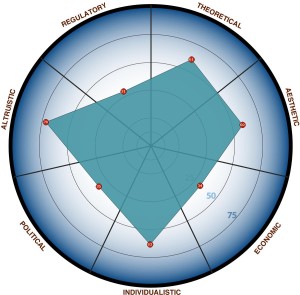Rewards vs Recognition as an Employee Motivator
As a business or organizational leader, we often need to consider ways to motivate people. One business owner was lamenting about the lack of motivation in his sales staff and remarked that if they were all on straight commission there would be a much greater level of performance. Let’s consider two of the most common approaches to motivation; rewards and recognition.
Rewards
Webster defines rewards as, the giving of either money or another kind of payment for something good which has been done. Reward practices we have seen include piecework incentives, sales commissions, and prizes for performance. Piecework was very common in the manufacturing of goods where an employee was paid by the number of products they produced. It is also part of the agricultural business where people were paid by the number of units harvested. Sales incentives are setup to pay a sales person by the number of units sold or by the total dollar value of those sales. These are external source motivators because the motivation is generated by an external source. They are initiated prior to the time of the activity so that the employee has a goal to achieve.
Recognition
Webster defines recognition as, the act of accepting that someone or something is true or important or that it exists. This type of motivation, for the most part, does not involve a financial payment. It may take the form of recognizing an individual’s achievement before a group of their peers. It may come with a simple personal praise out of the earshot of others. It is more personal on the part of the leader doing the motivation and the employee being motivated. Where rewards are established prior to an activity, recognition can come at any time after the achievement.
We Are Not All The Same
How often have we seen a manager or leader develop a motivation plan that is a complete flop? It is often the case that plan was based on what was motivating for the manager. What was not realized is that individuals have different motivators.
In working with individuals or groups, we try to understand what motivates each individual. We refer to these motivators as Values. We use an assessment tool developed by Innermetrix named the Value Index. It is based on research done by Dr. Eduard Spranger and Gordon Allport. There are seven values which are measured which are described below:
Value Drive For
- Aesthetic Form, Harmony,Beauty, Balance
- Economic Money, Practical, Results, Return
- Individualistic Independence, Uniqueness
- Political Control, Power, Influence
- Altruistic Altruism, Service, Helping Others
- Regulatory Structure, Order, Routine
- Theoretical Knowledge
Shown below is a graphic representation of the results of the Values Assessment for an individual.The stronger the value, the further away for the center of the circle it lies. This individual strongly values altruism and independence. They would be strongly motivated by the ability to work independently and provide a service which helps people. This profile is of a very successful salesperson, who is rewarded primarily by sales incentive. The interesting conclusion is that this person is not motivated by salary, but by the ability to help people. They would not be more motivated by the improvement in the compensations system. They would be more motivated to work independently and provide additional services to people in need.

This type of analysis can be extremely helpful in determining how to improve performance of a group or individual. One eternal motivator does not produce the desired effect on all thrpeople.
The Place for Rewards
Rewards have been effectively used when the desired result is easily measured. The number of pieces produced or the value of sales generated are prime examples of proven rewards systems. Although no employee works independently from others in the organization for the most part success is generated by their efforts. A real estate salesperson is compensated by sales commission, but the rate of that commission is calculated based on the support services provided by the office. People who do best in reward based systems usually have high economic and individualistic values.
 The Many Methods of Recognition
The Many Methods of Recognition
The Academy Awards, Tonys, and other traditional award programs are not by our definition awards. They are methods of recognition. The actors, directors and producers are not relying on an Oscar to receive their compensation for a particular movie.
Recognition can come in many forms. It may be done privately or publicly dependi ng on of the personalities of those involved and the culture of the organization. We have all witnessed organizational recognition which rivals the theatrics of the Oscars. The presentation of plaques and statues with flowery speeches can be done at major company meetings; but a personal pat of the back, done with sincerity, can have the same effect.
Years ago we were about to institute a recognition system in a highly unionized plant. The program plotted key departmental productivity measurements and acknowledged improvements through a recognition system. We were concerned that the union would resent the system because it was trying to influence the behavior of employees, so we decided to have an information meeting with the union leaders prior to announcing the program. At the conclusion of our presentation, one of the union leaders announced that what we were doing was nothing new. He told about a shop foreman who had since retired. Whenever an employee had done a good job, this foreman would just give him a gentle punch in the upper arm. That was his sincere means of recognition. It was recognized and appreciated by all those with sore arms.
In an earlier article, Does the KITA Method of Employee Motivation Work, Frederick Herzberg’s work in this area is sited. Through his work, he determined the factors which directly affect job satisfaction and therefore long term productivity. He called them motivational factors, of which the two most important were achievement and recognition. The simple, most effective and least costly practice is find someone doing something right and tell them you appreciate it.
